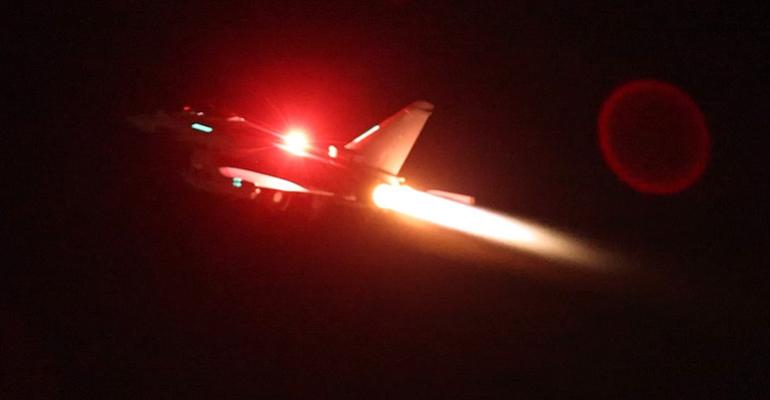Another U.S. preemptive strike on a Houthi anti-ship missile launcher near the Red Sea. U.S. Central Command has launched seven strikes weekly to safeguard international waterways for Navy and trade vessels. Houthi strikes on ships in the Red Sea and Gulf of Aden have disrupted global trade, prompting the latest raid.

US Launches Seventh Strike Against Houthi Threat Near Red Sea Amidst Global Trade Disruptions
The White House said these operations are necessary to protect commerce and U.S. Navy ships in the region. The Iranian-aligned Houthi group has begun attacking ships, raising concerns about a wider Middle East confrontation. U.S. operations aim to counter the Houthi threat and stabilize the sea route.
Due to the Houthi onslaught, major maritime corporations have redirected vessels to longer, more expensive African routes. The Red Sea corridor, crucial for trade between Europe and Asia, carries 15% of global marine activity. The tensions have raised concerns about global trade disruptions and supply chain bottlenecks. Houthi attacks are a demonstration of sympathy with Gazans fighting Israel.
Houthi leaders said Chinese and Russian warships without Israeli ties can transit via the Red Sea despite U.S. bombings. This claim questions the region’s geopolitical complexity. According to reports, Iran’s IRGC and Hezbollah direct and monitor Houthi strikes. Tehran allegedly gave the Houthi militia money, training, modern weapons, and intelligence.
READ ALSO: US Reinforcements Enter Syria, Syrian Woman Appeals to UN, and Israeli Strike Sparks Questions
Questions Surround U.S. Strategy as Middle East Tensions Escalate with Ongoing Houthi Attacks
Critics say the U.S. strategy of targeting Yemeni missiles is insufficient to resist Iranian weapons. Since Hamas’ October terror strike, Iranian-backed proxies have attacked U.S. forces in Iraq and Syria over 140 times. Recent missile attacks in Syria, Lebanon, Iraq, and Yemen intensify tensions, with both sides losing lives.
As events unfold, doubts remain regarding the U.S. strategy, regional actors, and a broader Middle East battle. Alliances and geopolitical interests complicate the solution to Red Sea Houthi attacks.




